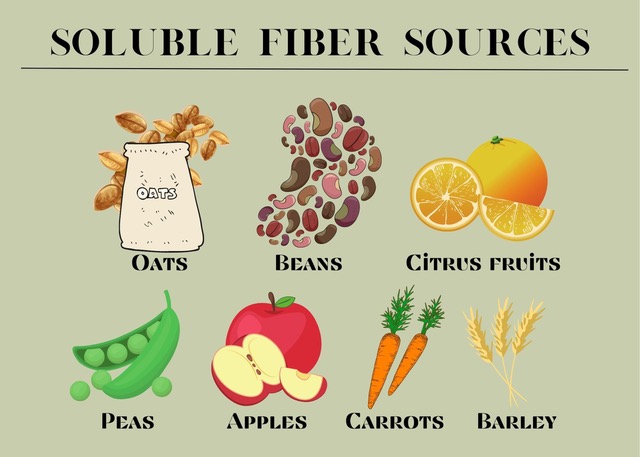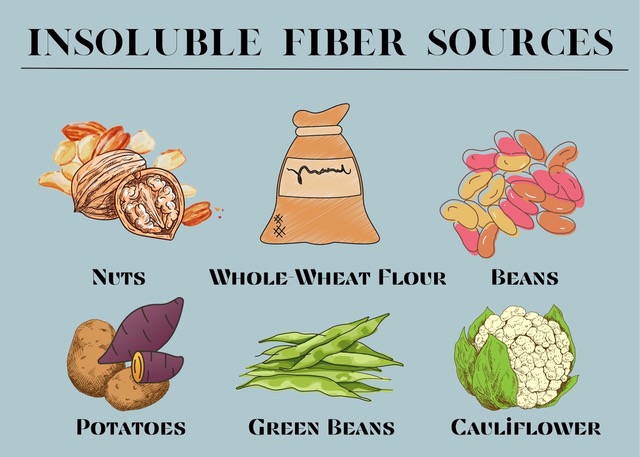Does apple juice help with constipation? Yes, and no. Let’s learn more!
When we’re feeling backed up, many of us reach for apple juice. It’s a tasty, natural remedy that’s often touted as a gentle, natural laxative that can help alleviate the symptoms of constipation. Constipation is a common digestive issue that affects people of all ages.
It can be uncomfortable and frustrating, leading many of us to seek out natural remedies. Many of us are familiar with the advice to drink more fluids to help ease constipation, and apple juice is often recommended due to its mild laxative effects and delicious taste.
Apple juice has a relatively high concentration of fructose, a sugar that can draw more water into the colon, and this in turn can help soften stool and promote bowel movements.
Along with its fructose content, apple juice also contains a good amount of water, which is essential for staying regular.
But that’s not all – this juice also offers a decent dose of sorbitol, a sugar alcohol that acts as a natural laxative.
What’s super important for us to consider is the balance. While apple juice offers these benefits, it isn’t a cure-all for constipation and should be consumed in moderation.
Drinking too much can potentially lead to digestive issues. So, we should see apple juice as one of the many tools in our kit for combating constipation.
Table of Contents:
- Understanding Constipation: Can Apple Juice Help with Constipation?
- Apple Juice and Constipation Relief
- Does Apple Juice Help with Constipation? [Nutritional Considerations and Alternatives]
- Potential Risks and Considerations When Using Apple Juice to Help with Constipation
- Lifestyle Factors Influencing Constipation
Understanding Constipation: Can Apple Juice Help with Constipation?
Before we dig in, let’s acknowledge that constipation is a common digestive condition where we experience fewer than normal bowel movements, often resulting in hard or lumpy stools that can be difficult to pass.
Constipation can be influenced by a range of factors, including our diet and hydration levels. It’s essential to recognize the causes, symptoms, and role of diet to manage and prevent constipation effectively.
Causes of Constipation
Constipation can sneak up on us for a variety of reasons. A lack of dietary fiber or water can lead to harder stools that are tough to pass. Sometimes, not getting enough exercise slows down our digestion, contributing to this uncomfortable condition.
Dehydration can cause stool to become hard and dry, making them difficult to pass. Additionally, lifestyle changes or underlying health issues like irritable bowel syndrome (IBS) or disturbances in the gut microbiome can contribute to chronic constipation.
- Lifestyle Factors: Lack of physical activity and certain medications can contribute to constipation.
- Health Conditions: Conditions such as an underactive thyroid (hypothyroidism) or neurological disorders can cause chronic constipation.
Symptoms and Diagnosis
Common symptoms for constipation include having less than three bowel movements per week, straining, and a sensation of incomplete evacuation (in other words, feeling like you have more stool to pass than you’re actually able to pass).
Diagnosis typically involves a physical examination, and if chronic, may include a review of bowel habits, dietary intake, and a patient’s health history.
- Physical Symptoms: This may include hard or lumpy stools, straining during bowel movements, or a feeling of blockage.
- Diagnostic Tools: For chronic constipation, doctors may use blood tests to rule out a systemic condition, and in some cases, a colonoscopy is completed to examine the intestinal tract.
Constipation and Diet
When it comes to easing constipation, small changes can make a big difference. Increasing our intake of both soluble fiber and insoluble fiber – think fruits, veggies, and whole grains – can help normalize bowel movements.
Adequate hydration is also key, as water helps to soften stools. Plus, regular exercise boosts our digestive system’s activity. Occasionally, we might need to speak with a dietitian to tailor our diet and fine-tune our lifestyle factors for better gut health.
- Hydration: Drinking enough water is essential to help fiber work effectively in our diet.
- Fiber Intake: Aiming for the recommended intake of 25 grams (for women) and 38 grams (for men) of fiber per day can greatly improve bowel movements.
- Gut Microbiome: A balanced diet can also support a healthy microbiome, which is beneficial for overall gut health.
By understanding the causes and symptoms of constipation and the role of diet, we can take proactive steps to maintain regular bowel movements and support our digestive health.


Apple Juice and Constipation Relief
When we’re dealing with constipation, apple juice often comes up as a go-to remedy. It’s all about the types of sugar and fiber in the juice that can assist bowel movement and provide relief.
Let’s examine how this common fruit juice can affect digestive health and how it stacks up against other remedies.
Roles of Fiber and Fructose
Apple juice contains fructose, a natural sugar, and sorbitol, which act as mild laxatives. They help pull water into the intestines, easing stool passage.
Although apple juice has a lower fiber content compared to whole apples, its soluble fiber, like pectin, does contribute to the formation of bulkier stools (making it easier to pass stool).
Does Apple Juice Help with Constipation? [Apple Juice Vs. Whole Apples]
Apples are rich in both soluble and insoluble fiber, which help with digestion. Apple juice, on the other hand, is less fibrous but can be easier to consume, especially for those who struggle with solid foods.
Plus, it can provide some level of hydration, which is crucial for softening stools.
Alternative Fruits and Juices
Apart from apple juice, other fruits like prunes, pears, and kiwis have a laxative effect.
Specifically, prune juice is high in fiber and can work more effectively than others. Prune juice also contains a notable amount of the natural laxative sorbitol, which is also found in lesser amounts in apple juice.
Pear juice also stands out due to its higher sorbitol content (4x more than apple juice), making it potentially more efficient than apple juice for easing constipation.
Learn more by checking out our article, 8 Fruit Juices High in Fiber.
Other Hydration and Dietary Considerations When Using Apple Juice to Help with Constipation
Ensuring we drink enough fluids is vital for preventing and treating constipation. It’s not just about the juice; water and other fluids like herbal teas contribute to the cause.
Incorporating a variety of fruits, vegetables, and whole grains into our diet can greatly improve intestinal health and prevent constipation from becoming a more significant issue.
Does Apple Juice Help with Constipation? [Nutritional Considerations and Alternatives]
When it comes to managing constipation, we must consider our overall diet and fluid intake. Our focus here is on how various nutritional elements like fiber and hydration can improve bowel function, and what dietary changes can be most effective.
The Importance of Fiber in the Diet
Fiber plays a crucial role in our digestive health. Soluble fiber, found in foods like oatmeal, beans, and certain fruits, absorbs water and can help soften stools.
On the other hand, insoluble fiber adds bulk to stool, which can help it pass more quickly and efficiently through our digestive tract. High fiber fruits such as apples and pears, as well as vegetables, whole grains, lentils, and peas, are great foods to have in our diet.
Hydration and Fluid Intake
Hydration is equally important for preventing constipation. Fluids help dissolve soluble fibers and move bulk through the intestines. We should ensure adequate fluid intake throughout the day.
This not only includes water, but also water/juice/moisture from foods like fruits and vegetables.
Effective Dietary Changes for Constipation Relief
To alleviate constipation, we can implement specific dietary changes. Including a variety of fiber-rich foods is vital. Here’s a brief overview:
- Fruits: Incorporate high fiber fruits like prunes, which are known for their natural laxative effect. Prunes are particularly high in sorbitol, a sugar alcohol with a laxative effect, which can be helpful for constipation relief.
- Vegetables: Consume a diversity of vegetables to get both types of fiber.
- Grains: Choose whole grains over refined grains for a higher fiber content.
- Beans and Legumes: Add beans, lentils, and peas to your meals for a fiber boost.
- Hydration: Pair these fiber-rich foods with adequate fluids to ensure smooth digestion.
By making these adjustments to your diet, you can help promote regular bowel movements and prevent constipation.
Check out The Best Smoothie for Constipation Relief [Dietitian Approved]!
Potential Risks and Considerations When Using Apple Juice to Help with Constipation
While we often hear about the benefits of apple juice for constipation, it’s important to be aware of the potential risks and considerations associated with its consumption, especially when it becomes a regular part of our diet.
Overconsumption and Side Effects
Drinking apple juice in moderation can be a gentle way to relieve constipation due to its content of dietary fiber and sorbitol. However, overconsumption can lead to side effects such as:
- Diarrhea: Too much apple juice can cause loose stools or diarrhea, due to the high levels of fructose and sorbitol.
- Dehydration: Diarrhea can further lead to dehydration, which can be particularly concerning for the elderly.
Balancing Apple Juice Intake with Whole Foods
It’s important to balance our intake of apple juice with whole foods, since apple juice lacks the same amount of dietary fiber found in whole apples. Fiber is crucial for maintaining healthy digestion and can prevent chronic constipation.
- Whole Foods: Incorporating whole fruits, veggies, and grains should always be our first line of defense against constipation.
Lifestyle Factors Influencing Constipation
In talking about constipation, we tend to overlook the influence of lifestyle. Daily activities such as exercise, along with the use of certain medications and supplements, play important roles.
We, along with advice from health professionals, can make informed decisions to improve gut motility.
Exercise and Physical Activity
Regular exercise is crucial for maintaining smooth digestive functions. Engaging in physical activity enhances gut motility, reducing the time our intestines take to move food along.
It’s advised to incorporate a mix of cardiovascular exercises, like walking or swimming, and strength training to support overall bowel health. For women particularly, who may experience more frequent constipation, physical activity is especially important.
The Impact of Medications and Supplements
Medications and supplements often have a side effect on our bowel movements. For example, high calcium or iron supplements can lead to constipation. Conversely, certain supplements such as magnesium can help to alleviate it.
It is essential for us to consult a registered dietitian or pharmacist when starting new supplements or medications to understand their potential effects on our bowel habits.
Incorporating probiotics and prebiotics, through supplements or foods such as kefir and yogurt, can be helpful in promoting a healthy gut and may improve constipation.
Advice from Health Professionals
Seek guidance from health professionals – registered dietitians and physicians – to manage your constipation effectively. These experts might recommend increases in dietary fiber, potassium, and vitamin-rich foods, all of which can aid in relieving constipation.
They may also suggest lifestyle adjustments, including targeted exercise, to enhance bowel function. It’s important to follow personalized advice to address your unique health needs – especially if you are diagnosed with chronic constipation.
